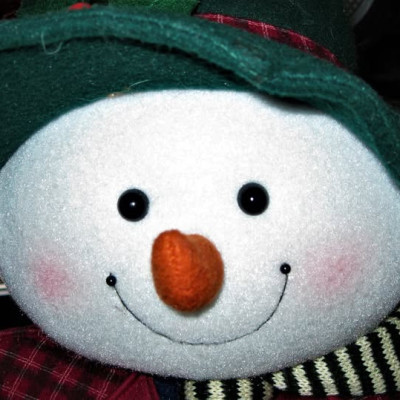EXPLORING THE NUANCES OF GOOD AND BAD: UNDERSTANDING MORALITY ACROSS CULTURES
___________________________________________________________________
As an innovator, creativity flows through my veins! However, it all goes in vain if the noggin is out of space. In other words, it all depends on the mood. That being said, I was not in a good mindset and have been pretty much drowned in a bad mood lately, which has prevented my creativity from taking any action.
Thankfully, my good and bad moods did not cause any reaction, so they remained undetectable. Nevertheless, the overall situation raised the question: WHAT IS GOOD? WHAT IS BAD?
We belong to the generation of science, logic, and intelligence indicating: EVERYTHING NEEDS TO BE IN BLACK OR WHITE, LACKING THE CONCEPT of BELIEVE IN GRAY! We witness to believe, hear to respond and react to act. So, if good and bad cannot be seen: Do these terms embody any consequential connotation?
Real, truth, faith, lie, happiness or sadness are a few of many essentials in life that are invisible to be seen, and so are BAD and GOOD!
If you are crazy like me, the plunge into this play where I tried to figure out WHAT IS GOOD? WHAT IS BAD?
__________________________________________________________________
🥰ARE HUMANS BORN WITH THE SENSE TO IDENTIFY WHAT IS GOOD? WHAT IS BAD?👺
Throughout history, philosophers, scientists, and cultures have been trying to find the truth about the reality of GOOD and BAD. Are these traits built into every human being from birth?
The concept of what appears to be good or bad is a learnt process due to cultural philosophies, intellectual controversies, and scientific explorations.
By examining different dimensions, the notion of what is good, and what is bad can be explored.
__________________________________________________________________
__________________________________________________________________
The Most Significant Factors Determining What Is Good & What Is Bad Are:
💒Cultural Viewpoints🎭
🧑🍳Philosophical Controversies➕
🧑🔬Scientific Examinations🇦🇨
__________________________________________________________________
💒INFLUENCE OF CULTURE SHAPING THE GOOD AND THE BAD s🎭
Cultural portrayals of good and bad can differ enormously from one society to another. Each culture possesses its own set of norms, values, and belief systems that shape the collective understanding of what is considered right and
wrong. For instance, a practice celebrated and deemed virtuous in one culture might be viewed as immoral or unacceptable in another.
This notion implies that our moral compass is largely influenced by the environment in which we are raised, suggesting that morality is not an inherent trait but rather a construct that evolves within the context of social and cultural frameworks.
This raises profound questions about the nature of morality itself:
If our perception of good and evil is dictated by societal standards and expectations, to what extent can we genuinely label ourselves as good or bad individuals?
Are these labels truly reflective of our character, or are they merely reflections of the cultural narratives we have internalized?
Such inquiries challenge us to consider the complexity of moral judgment and the extent to which our ethical beliefs are shaped by the societies we belong to, spotlighting the intricate interplay between individual conscience and collective cultural identity.
__________________________________________________________________
🧑🍳HOW PHILOSOPHICAL CONTROVERSIES IMPACT THE NOTION OF GOOD AND BAD➕
~~~As per the theory of Moral Realism proposed by Plato, every human being inhibits sense to differentiate right from wrong according to the ubiquitous benchmarks.
~~~On the other hand, Ethical Relativism argues that morality is a subjective and cultural construct.
~~~Evolutionary Psychology, which holds that natural selection has moulded human behaviour, is another significant point of view. In this ~~~Theory of Evolutionary Psychology, traits that are considered "good," including social bonding and cooperation, have evolved because they improve community survival.
~~~On the other hand, "bad" behaviours might also have evolutionary origins, but they can also show up in ways that are harmful to social cohesiveness.
~~~Furthermore, philosophers such as Jean-Jacques Rousseau held that people were inherently good despite being tainted by society. ~~~Thomas Hobbes, on the other hand, promoted a more pessimistic viewpoint, contending that because people are inherently greedy, social structures are necessary to preserve order.
__________________________________________________________________
💬SCIENTIFIC INQUIRY INTO MORAL BEHAVIOR🤳
=Psychology and neuroscience research have focused on understanding the roots of moral behaviour, specifically how genetics and environmental influences shape human acts.
=Despite numerous studies, including key contributions such as the =*Nature vs. Nurture* debate and research into gene-environment connections, experts have yet to reach a definite judgment.
=There is no agreement on a precise threshold that separates purely good and terrible human behaviour, as the intricacies of human behaviour preclude any easy categorization.
=A major study by researchers at Osaka University, titled *Infants' =Responses to Antisocial Behavior*, discovered that even infants have the ability to penalize antisocial behaviour observed in others.
=This research suggests that a fundamental desire for moral action may be present in individuals from a young age.
__________________________________________________________________
🎁 IT'S TIME TO WRAP THIS GIFT OF KNOWLEDGE 🎉
Ultimately, considering whether people are essentially good or terrible forces us to consider the complex interplay between biology, culture, and individual choices that shape our moral perceptions as well as our beliefs and behaviours.
In conclusion, while cultures use their lenses to mould our ideas of right and wrong, philosophy makes strong cases for both positions and science still struggles with these ideas without agreeing.
In the end, the topic of whether humans are inherently good or bad challenges us to consider profound issues regarding the nature of humanity—a path that is very worthwhile for anyone looking to gain insight into this significant facet of life.
__________________________________________________________________
#goodvsbad #morality #humannature #culturalinfluence #philosophy #ethics #moralrealism #ethicalrelativism #evolutionarypsychology #naturevsnurture #moralbehavior #culturalnorms #philosophers #socialconstruction #moraljudgment #conscience #humanbehavior #psychology #culturalidentity #goodandevil #creativity #moodinfluence #culturalbeliefs #collectiveconsciousness #moralcompass #philosophicalinquiry #socialphilosophy #lifeessentials #understandingmorality #invisibleconcepts #selfreflection #moralexploration #researchinpsychology #humanexperience #truthandlie #moraldevelopment #subjectivemorality #socialframeworks #moralphilosophy #complexityofmorality #moralvalues #humantraits #culturalperceptions #goodandbadpeople
@goodandbadpeople






